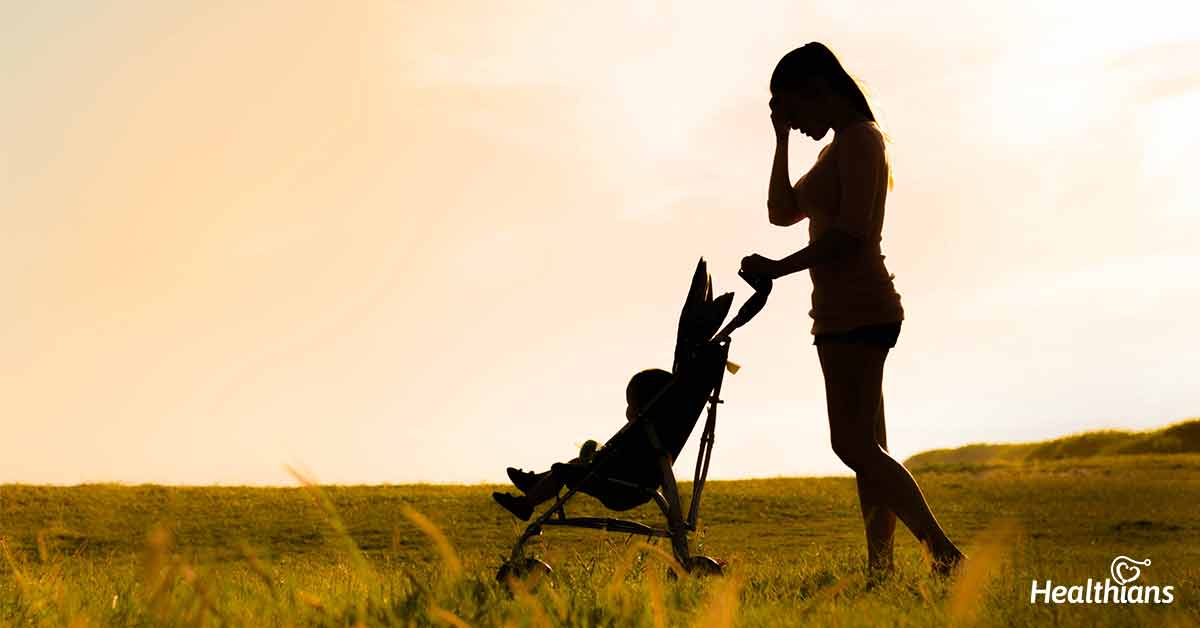Contributed by – Healthians Team
Giving birth to a baby is one of the most precious experiences. The family, particularly the parents have mixed emotions after holding their bundle of joy. But these emotions can be even stronger in the new moms. Some women experience a feeling of anxiety and sadness after their baby is born. These may affect the woman to the extent that she is unable to take care of herself and her baby. This is also known as post-partum depression.
There are several types of depression affecting people in different ways. Most of these affect the way the person thinks and behaves, resulting in social problems. Baby blues is a common problem in new moms but the sadness and mood swings last for only a few days. However, post-partum depression lasts longer – it usually begins after childbirth but can affect some women since pregnancy and can go up to a year after childbirth.
All About Post-Partum Depression
While these feelings are common in new moms, knowing about this condition can help in every way. Depression symptoms can be recognized if you are aware of them. This can help you take appropriate action and support the family.
What are the causes of post-partum depression?
There are many reasons for depression and is related to many factors. Also, some women who are oversensitive may be predisposed to this more than others. Post-partum depression is mainly influenced by hormonal changes that occur post childbirth. The pregnancy hormones (oestrogen and progesterone) are maintained at higher levels during the entire pregnancy. After childbirth, these hormone levels suddenly drop down. This could possibly affect the mood and result in mood swings. Some women may also experience changes in thyroid levels.
Other factors that contribute to the occurrence of post-partum depression are that women undergo extreme stress during and after childbirth. For some women, experiencing complications during pregnancy too increases their trouble. After childbirth, women may not get enough rest, which can sometimes cause irritability.

How does this condition present itself?
Symptoms of depression in women can vary in their intensity. For most women, these symptoms may last for a few weeks or even months. Not all women experience all the symptoms. But most women experience changes in the way they feel, which affects their daily functions. For example, it affects the mood, concentration, appetite, sleep.
Some of the commonest signs of depression include the following
- Feeling low for most days or severe mood swings
- Feeling of worthlessness, hopelessness
- Anxious about taking care of the baby
- Difficulty in bonding with the baby
- Withdrawal from family and friends
- Difficulty in concentrating or thinking clearly
- Loss of interest in activities once enjoyed
- Changes in eating and sleeping patterns – either too much or too less
- Easily getting irritable over silly things
- A sudden feeling of anxiousness with panic thoughts
- Thoughts of harming the baby or self
Some women may experience physical symptoms like headaches, gastric disturbances, muscle or body pain.
Post-partum depression can be a serious issue and if not treated in time can lead to further problems. Leaving this condition untreated can affect the health of the mother and increases the risk of suicide. It can also affect the health and development of the baby as the mother cannot care enough, bond or communicate positively with the child.
How to fight depression?
Post-partum depression needs proper evaluation and diagnosis from a physician. This helps in planning a proper treatment regime. The approach generally includes
- Counselling or talk therapy – Talking to a therapist or counsellor to learn strategies to cope with the feelings of depression.
- Medications – Physicians may prescribe medicines that help to deal with depression. Taking nutritional supplements
Apart from this, the new mother and family can take certain steps to fight depression. These include taking as much rest as possible, seeking help to care for the baby or for household duties and having a nutritious, healthy diet. As a new mom, you can share your feelings with your partner, family or friends. You can consider joining a new mommy group or a support group to feel more comfortable.




